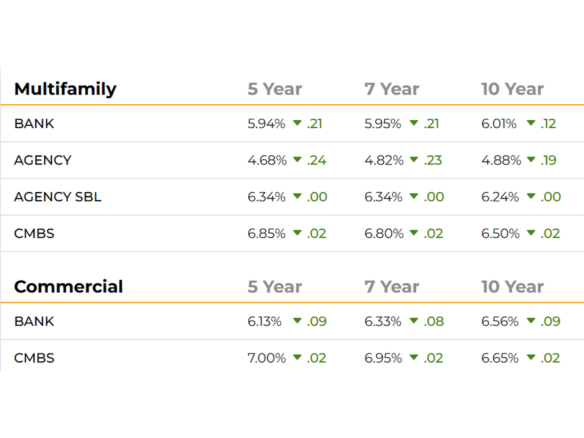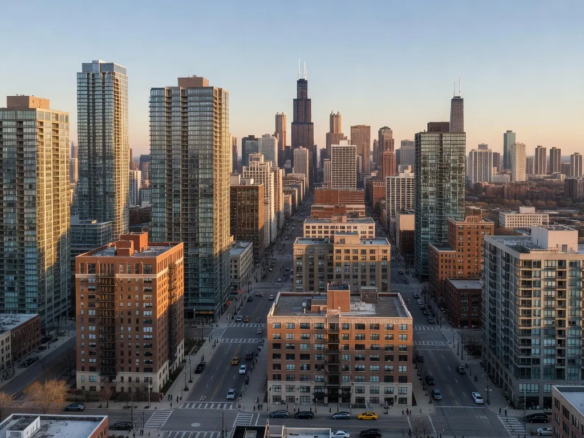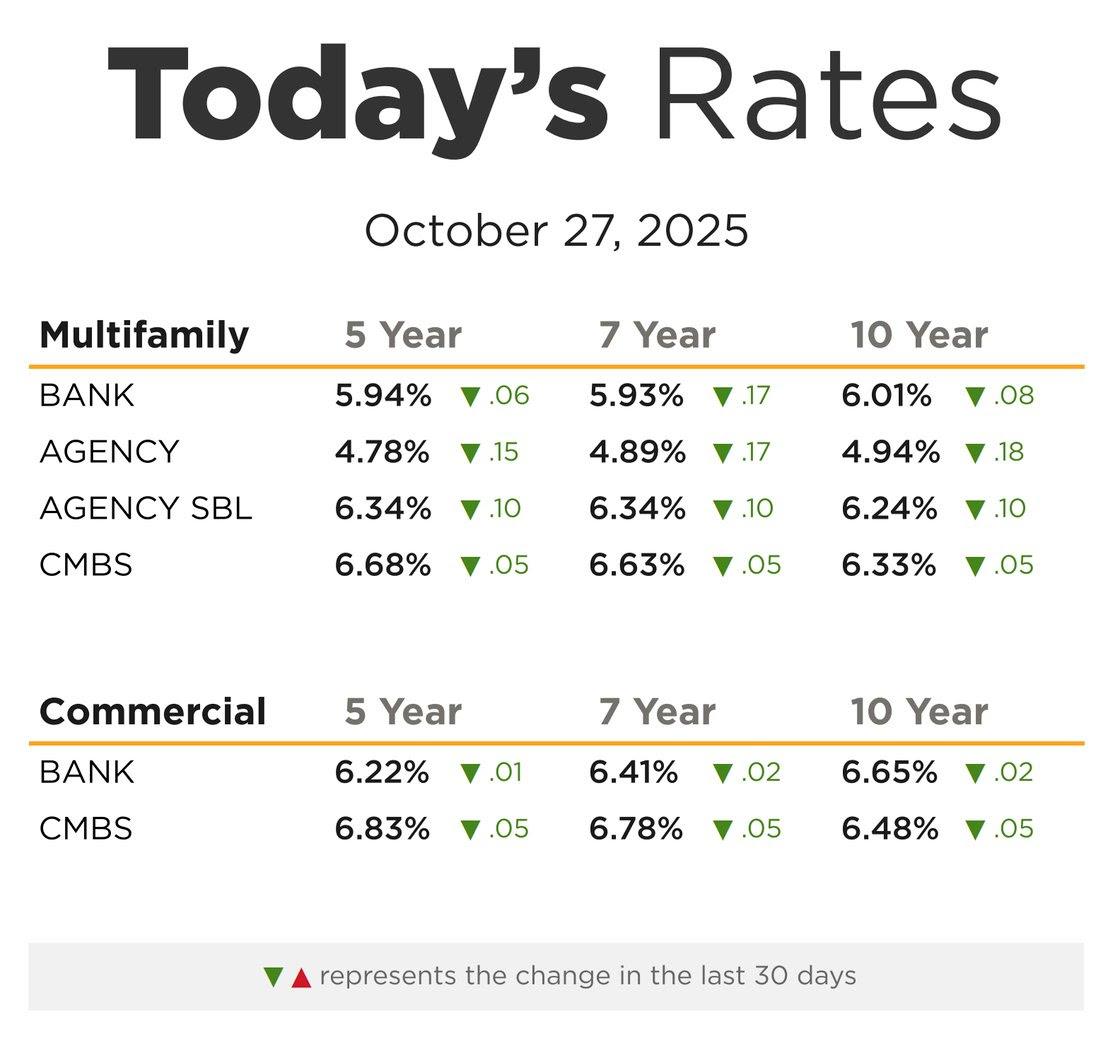Despite a tumultuous 2020, a year in which the country was turned upside down by a deadly pandemic that led to economic upheaval, the commercial real estate lending community overwhelmingly believes brighter days are ahead on the business front.
France Media’s 2021 forecast survey of direct lenders and financial intermediaries nationally reveals that 84 percent of respondents expect the total dollar amount of commercial and multifamily loans closed by their firm this year to increase when compared with 2020 deal volume.
Only 6 percent of survey respondents anticipate business volume will decrease at their firm on a year-over-year basis, and 10 percent project business volume will remain the same.
“I expect our loan volume to increase by 50 percent in 2021 versus 2020, as many lenders were unable to make decisions or even set loan policies during COVID,” says Ben Kadish, president of Maverick Commercial Mortgage, a Chicago-based mortgage banking firm.
“As the vaccine process expands, and the world opens up, lending for more property types will expand. Some lenders will start looking at retail, office, and hospitality now.”
As of late February, the death toll in the United States from COVID-19 had surpassed 500,000, according to Johns Hopkins University. U.S. President Joe Biden has said that it will take several months at a minimum to get most Americans vaccinated because the process is such a massive undertaking.
Among survey respondents who anticipate an increase in total loan volume in 2021, nearly half expect growth to exceed 20 percent. Approximately one-quarter expect growth to range from 6 to 10 percent.
Bullish on Multifamily
Survey participants were asked which property sector(s) they believe provide the most attractive financing opportunities for lenders today.
Multifamily was the most frequently cited property sector by respondents (93 percent), followed by industrial (76 percent), mixed-use (21 percent), office (19 percent), and retail (15 percent).
Not a single lender or financial intermediary identified the hotel sector as being among the most attractive financing opportunities.
“Financing for apartments, mobile home parks, and self-storage assets is measurably more attractive than for any other category presently,” says Kadish. “Industrial is also attracting strong interest from lenders.”
On the flip side, survey participants were also asked which property sector(s) they believe provide the least attractive financing opportunities for lenders.
An overwhelming number of respondents (91 percent) cited hotels, followed by retail (60 percent), office (22 percent), mixed-use (7 percent), industrial (6 percent), and multifamily (3 percent).
“Office, hospitality, and retail are in the Wild West as far as the wide range of loan quotes varying by size, sponsor, location, and loan-to-value,” observes Kadish. “The same loan could receive a quote from a life company or a hard money lender, depending on the location and size.”
CMBS Outlook
Private-label CMBS issuance in the United States totaled $56 billion in 2020, down nearly 43 percent from the $96.7 billion of issuance in 2019, according to Trepp LLC. The New York City-based data analytics firm projects CMBS issuance to reach $78 billion in 2021.
Participants in the France Media survey were much less bullish on the near-term prospects for the CMBS market than Trepp. The largest group (22 percent) expects total issuance to be less than $49 billion in 2021, followed by 18 percent who believe it will range between $50 billion and $59 billion, and 17 percent who expect issuance to range from $80 billion to $89 billion.
There was a statistical tie (15 percent) between respondents who expect CMBS issuance to range from $60 billion to $69 billion and those who project issuance of $70 billion to $79 billion, according to the survey results.
Interest Rate Predictions
Three-quarters of the lenders and financial intermediaries surveyed expect interest rates to remain relatively steady in 2021, 20 percent project rates will increase, 3 percent indicate they will decrease and under 2 percent are uncertain.
Where will the yield on the 10-year U.S. Treasury note stand at the end of 2021? About two-thirds of respondents (67 percent) indicated that they expected the 10-year Treasury yield to finish the year somewhere between 1 percent and 1.5 percent.
At the close of business on Friday, Feb. 26, the 10-year Treasury yield stood at 1.44 percent following a rapid spike, its highest mark in more than a year. That figure, which represents an 88-basis-point increase from the nadir of 0.52 percent in early August, marks the most current data that was available at press time.
Hotel, Retail Recovery
Two of the hardest-hit property types from COVID-19 continue to be the lodging and retail/restaurant sectors due to factors such as travel restrictions, safety protocols, and government bans on in-person restaurant dining.
Lenders and financial intermediaries were asked to provide their best guesses as to how long it will take for each sector to return to pre-pandemic levels of business activity.
Some 36 percent of respondents think the hotel sector will need three years or longer to recover. Another 31 percent believe it will take two years to return to pre-pandemic levels of business.
Meanwhile, 41 percent of survey respondents indicate that it will take two years for businesses in the retail and restaurant sectors to return to pre-pandemic levels of business. According to the National Restaurant Association, more than 110,000 eating and drinking establishments closed in 2020 either temporarily or for good.
Challenges, Opportunities
In the write-in portion of the survey, lenders and financial intermediaries were asked to highlight what they see as the greatest opportunities and/or challenges facing the commercial real estate industry in 2021. The question garnered nearly 40 write-in responses from industry professionals who had the option to remain anonymous or provide their names.
Charles Krawitz, vice president of commercial lending and loan trading with Chicago-based Alliant Credit Union, believes that falling occupancies and rental rates across most markets and all asset classes pose a major challenge to property owners today. “Borrowers will need to envision entirely new uses/concepts for their assets, and invest heavily to reposition properties for success in a very different world,” he states.
Daniel Hartnett, senior director of capital markets for Greysteel, wrote that the greatest opportunity in commercial real estate this year will be in some of the asset classes that have either been overlooked or passed over because of pandemic-related “drop-offs” [in real estate fundamentals].
Hotel and core retail assets will rebound once the vaccine has been fully deployed and the market comes back, Hartnett believes. “These are the best yield pickups if the basis is correct. We are also bullish on the build-to-rent, single-family residential product, as institutional capital is aggressively chasing the space. We expect it to continue to be strong through 2021.”
Mike Caffrey, president of Overland Park, Kansas-based Caffrey & Co. LLC, says the biggest challenge is forecasting the future for entertainment venues, travel-related enterprises such as the airlines and hospitality, and sporting events. But the uncertainties surrounding commercial real estate go much deeper, he says.
“Did the pandemic that required people to work from home permanently reshape demand for office space? When office leases expire, will the tenants renew, downsize or go to the work-from-home model? Has the acceleration of online retail purchases forever reduced the demand for retail storefronts? Will densely populated communities such as New York City permanently lose population? These concerns make it challenging to forecast future demand for many sectors of commercial real estate,” wrote Caffrey.
Jonathan “JB” Kieswetter, president of California-based Grace Capital Group, was succinct in his assessment of the current situation. He says the biggest challenge is “getting businesses back to work so the consumer is back in action.”
Receive Market Insights
Periodic analysis on rents, pricing, cap rates, and transaction activity across Chicago and key suburban markets.





